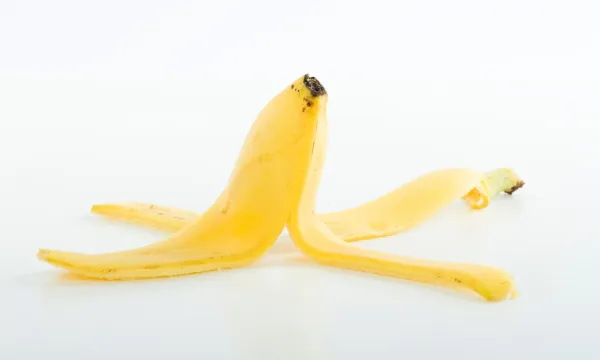
Hey there! Ever wondered if your furry friend can snack on banana peels? Well, you’re not alone! “Can Dogs Eat Banana Peels?” is a common question for pet parents looking to add a bit of excitement to their pup’s menu. Today, we’re going to chat about whether banana peels are a safe and tasty treat for your dog or if it’s better to keep them out of the snack lineup. Join us as we unravel the mystery around dogs and banana peels, making it super easy for you to decide what’s best for your four-legged pal.
Can Dogs Eat Banana Peels?
No, dogs should not eat banana peels.
Detailed Explanation: While banana peels are not toxic to dogs, they are not advisable for them to eat due to their tough texture and high fiber content. Here are a few reasons why feeding your dog banana peels might be a bad idea:
- Digestive Issues: Banana peels are difficult for dogs to digest. Eating banana peels can lead to gastrointestinal upset, including constipation or even a blockage, which might require veterinary intervention.
- Choking Hazard: The tough and fibrous nature of banana peels makes them a potential choking hazard, especially for smaller dogs or dogs that tend to gulp their food without chewing thoroughly.
- No Nutritional Benefit: While bananas themselves are nutritious, the peels do not offer any significant nutritional benefits that justify the potential risks.
Given these factors, it’s best to stick to feeding your dog the banana itself after it has been properly peeled. Always cut the banana into appropriate-sized pieces to prevent choking. If your dog accidentally eats a banana peel, monitor them for signs of gastrointestinal distress and consult your veterinarian if you observe any concerning symptoms.
Relevant Post: Can Dogs Eat Banana?
Nutritional Content of Banana Peels
While often discarded as waste, banana peels actually hold a variety of nutrients that are beneficial in human diets. However, when it comes to dogs, the practicality of feeding them banana peels is questionable due to several health concerns. Let’s delve into what nutrients banana peels contain and discuss why they still might not be a suitable choice for feeding to dogs.
Nutritional Benefits of Banana Peels
- Dietary Fiber: Banana peels are high in dietary fiber, which can help regulate bowel movements and improve gastrointestinal health. However, the fiber in banana peels is particularly tough and not easily digested by dogs.
- Vitamins and Minerals: Peels contain higher amounts of certain vitamins and minerals than the banana flesh itself. This includes vitamin B6, vitamin B12, magnesium, and potassium. Vitamin B6 is essential for glucose generation, immune response, and hormone regulation. Potassium aids in muscle health, cardiovascular health, and fluid balance.
- Antioxidants: Banana peels have been found to contain several types of antioxidants, including lutein, which is known for its ability to support eye health. They also contain polyphenols and carotenoids, which are linked to reduced risks of some chronic diseases and overall inflammation.
Concerns and Practical Considerations
Despite the apparent nutritional benefits, there are significant concerns associated with feeding banana peels to dogs:
- Digestibility: The tough, fibrous nature of banana peels makes them very difficult for dogs to digest. This can lead to gastrointestinal issues, including blockages that may require surgical intervention in severe cases.
- Potential Toxins: While commercially grown bananas are generally safe, the peels can accumulate pesticides and other chemical residues. If not thoroughly washed, these chemicals could pose a health risk to your dog.
- Choking Hazard: The texture and toughness of banana peels make them a potential choking hazard, particularly for smaller dogs or those that tend to swallow food without adequate chewing.
While banana peels are not toxic and do contain some potentially beneficial nutrients, the risks associated with their consumption, particularly concerning digestibility and the potential for gastrointestinal obstruction, outweigh the benefits. It is advisable to stick to feeding your dog the flesh of the banana only, ensuring it is peeled and prepared in a safe manner that is easy for your dog to consume and digest. Always consult with a veterinarian if you are considering introducing new types of food into your dog’s diet to ensure that it is safe and appropriate for their specific health needs.
Understanding the Benefits of Bananas for Dogs
Before addressing the peel question, it’s essential to recognize that bananas, in moderation, can be a healthy treat for dogs. They are low in calories and high in potassium, making them a nutritious addition to your pet’s diet. The real question arises when we consider the often-overlooked peel.
Potential Risks: Can Banana Peels Harm Your Dog?

While banana peels are not toxic to dogs, they can be challenging to digest due to their tough and fibrous nature. Ingesting large pieces of peel might lead to gastrointestinal issues, including blockages. Additionally, the peels may have come into contact with pesticides or other chemicals, posing a potential risk to your pet.
Relevant Post: Can Dogs Eat Banana Peppers?
How to Safely Introduce Banana Peels into Your Dog’s Diet
If you’re eager to incorporate banana peels into your dog’s diet, moderation is key. Start by introducing small, finely chopped pieces to observe how your pet reacts. Remove any seeds and ensure the peel is thoroughly washed to minimize the risk of pesticide exposure.
Step-by-Step Guide to Preparing Banana Peels for Dogs
To make banana peels more palatable for your furry friend, consider cooking or blending them. This can help break down the tough fibers and make them easier to digest. Always consult your veterinarian before introducing any new food into your dog’s diet, especially unconventional treats like banana peels.
Relevant Post: Can Dogs Eat Sweet Banana Peppers?
Common Misconceptions About Dogs and Banana Peels
There are various misconceptions surrounding dogs and banana peels. Some believe that peels can enhance a dog’s coat or contribute to dental health. However, it’s crucial to rely on scientific evidence and consult with your vet to make informed decisions about your pet’s diet.
Veterinarian Insights: What the Experts Say
When in doubt, seek advice from veterinary professionals. Veterinarians can provide personalized guidance based on your dog’s breed, age, and overall health. If you’re considering adding banana peels to your dog’s diet, consult your vet to ensure it aligns with their specific dietary needs.
What To Do If Your Dog Ate A Banana Peel?
If your dog has snuck a banana peel snack, there’s no need to panic. While banana peels aren’t toxic to dogs, they can be a bit challenging for their digestive systems due to their fibrous nature. Here’s a simple guide on what to do if your dog ate a banana peel:
- Monitor Your Dog: Keep a close eye on your pup for the next 24 hours. Watch for any signs of discomfort, unusual behavior, or digestive issues.
- Check for Choking Hazards: Ensure that your dog hasn’t ingested large pieces of the peel that could pose a choking hazard or block their digestive tract.
- Offer Water: Encourage your dog to drink water. This can help in the digestion process and may alleviate any potential gastrointestinal discomfort.
- Consult Your Veterinarian: If you notice any concerning symptoms such as vomiting, diarrhea, lethargy, or if your dog seems distressed, consult your veterinarian promptly. They can provide personalized advice based on your dog’s health and the amount of peel ingested.
- Modify Their Diet: Consider feeding your dog a bland diet for the next day or two, consisting of easily digestible foods like boiled rice and lean chicken. This can help soothe their stomach.
- Prevent Future Access: Keep banana peels and other potentially challenging-to-digest items out of your dog’s reach to avoid a repeat incident.
Remember, prevention is key, but if your dog does indulge in a banana peel, staying vigilant and taking these simple steps can help ensure their well-being. If in doubt or if symptoms persist, always consult with your veterinarian for professional guidance.
Conclusion
In conclusion, while dogs can technically eat banana peels, it’s essential to approach this potential treat with caution. Prioritize your pet’s well-being by understanding the nutritional content, potential risks, and consulting with your veterinarian. Making informed choices about your dog’s diet ensures they enjoy a healthy and happy life.
Remember, every dog is unique, and what works for one may not work for another. By staying informed and consulting with professionals, you can make decisions that positively impact your pet’s overall health and happiness.
FAQ.
1. What happens if a dog eats a banana peel?
If your dog snags a banana peel, it’s usually safe but may lead to digestive discomfort due to its tough texture. Keep an eye out for signs like vomiting or diarrhea. Persistent issues warrant a vet visit for tailored advice on managing any potential discomfort without delay.
2. Can a dog eat a whole banana?
Yes, dogs can indulge in whole bananas, peel excluded. Despite being a nutrient-rich treat, the natural sugar content calls for moderation. Slice and offer small portions occasionally to prevent excessive sugar intake.
3. Are banana peels edible for dogs?
While technically edible, banana peels pose a digestion challenge for dogs due to their toughness. If you choose to introduce them, do so in moderation, considering cooking or blending to aid digestion and minimize the risk of gastrointestinal issues.
4. Can dogs eat banana leaves?
Banana leaves are non-toxic to dogs but can be challenging to digest. To avert potential digestive discomfort, it’s prudent to abstain from offering banana leaves. Opt for safer, easily digestible treats in your dog’s diet.
5. Can Dogs Eat Banana Peppers?
Banana peppers are generally safe for dogs in moderation. Caution is crucial with spicy varieties, as they can irritate your dog’s stomach. Introduce banana peppers gradually, monitor your pet’s response, and restrict their consumption to stave off potential digestive concerns. Consult your vet for personalized guidance on your dog’s diet and health.
Read More:
- Can Dogs Eat Cumin?
- Can Dogs Eat Octopus?
- Can Dogs Eat Oatmeal Cream Pies?
- Can Dogs Have Provolone Cheese?
- Can Dogs Eat Egg Rolls?
- Can Dogs Eat Tamales?
- Can Dogs Eat Yellow Rice?
- Can Dogs Eat Babybel Cheese?
- Can Dogs Eat Plantain Chips Safely?
- Can Dogs Eat French Toast?
- Can Dogs Eat Veggie straws?
- Can Dogs Eat Rotisserie Chicken?
- Can Dogs Eat Orange Chicken?
- Can Dogs Eat Durian Safely?
- Can Dogs Eat Cheerios?
- Can Dogs Eat Couscous?
- Can Dogs Eat Funyuns?
- Can Dogs Eat Acai?
- Can Dogs Eat Tuna?
- Can Your Dog Eat Onions?
- Can my dog eat this?
- Can Dogs Eat Pop Tarts?



